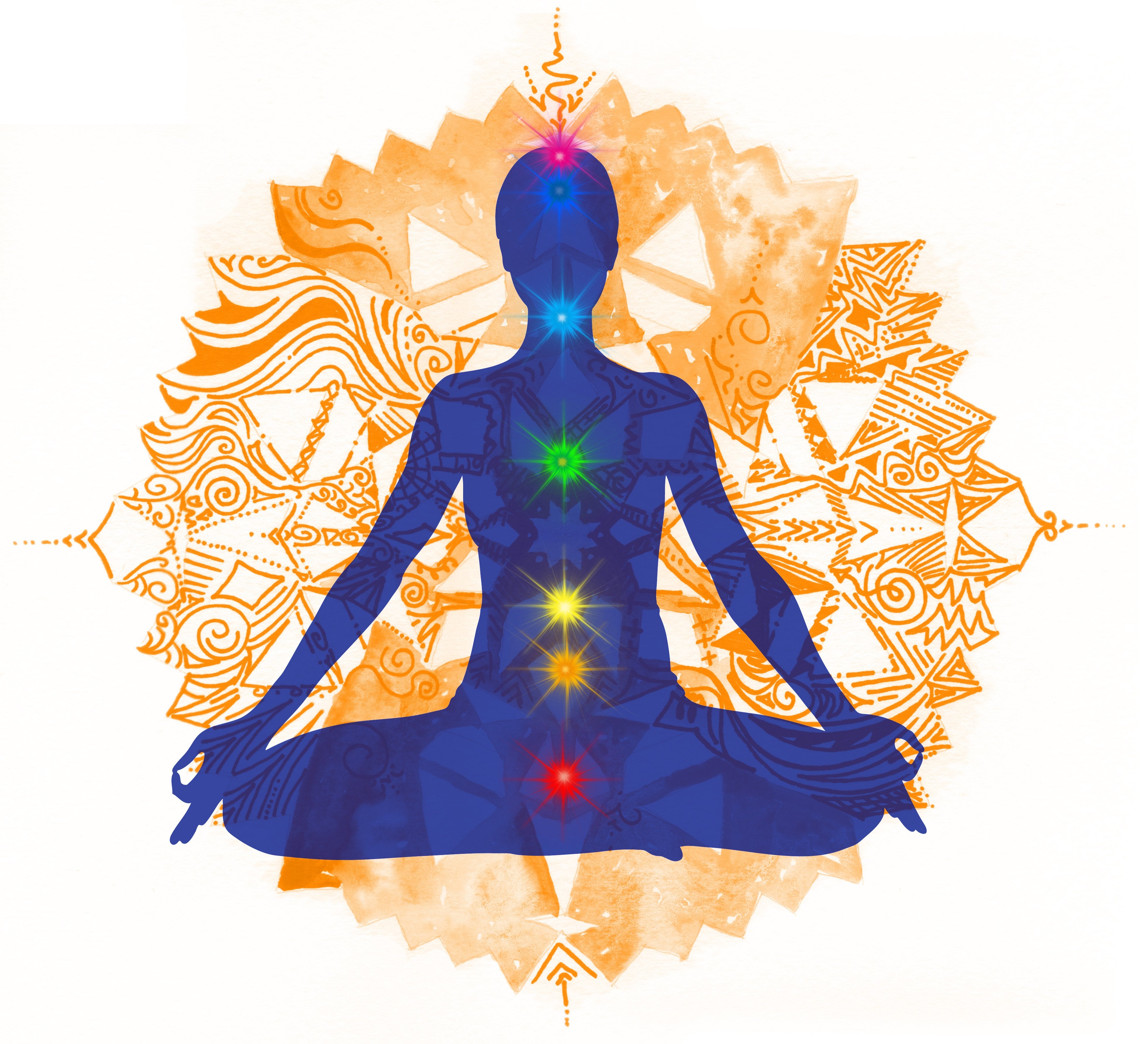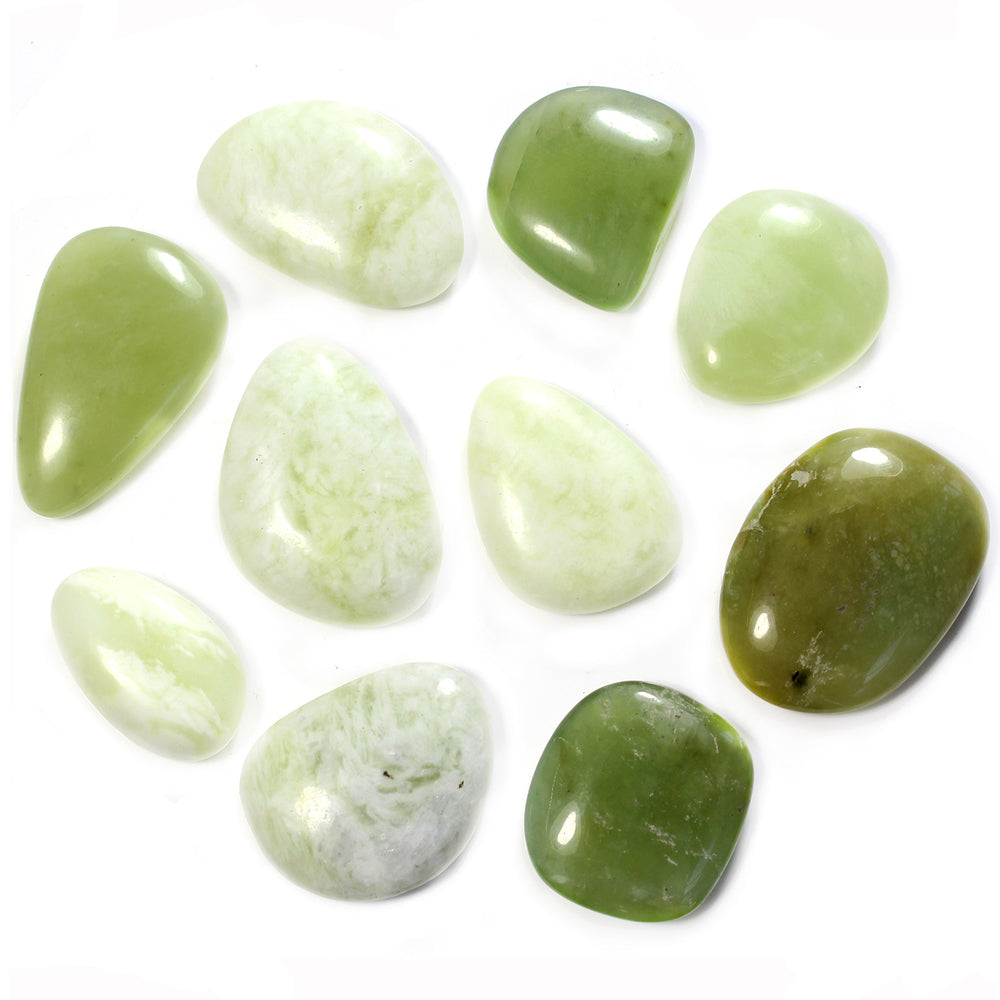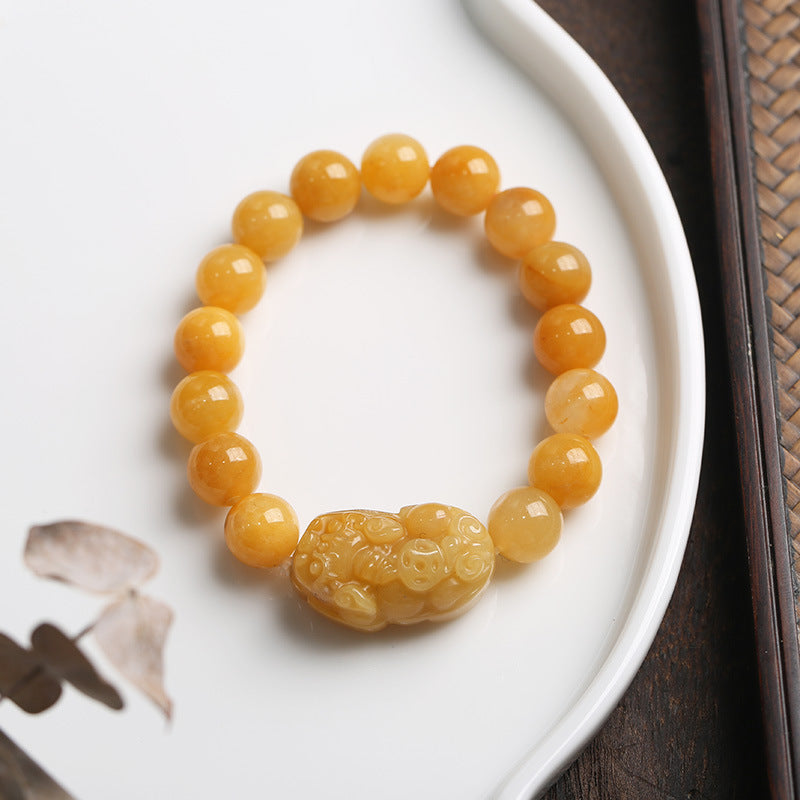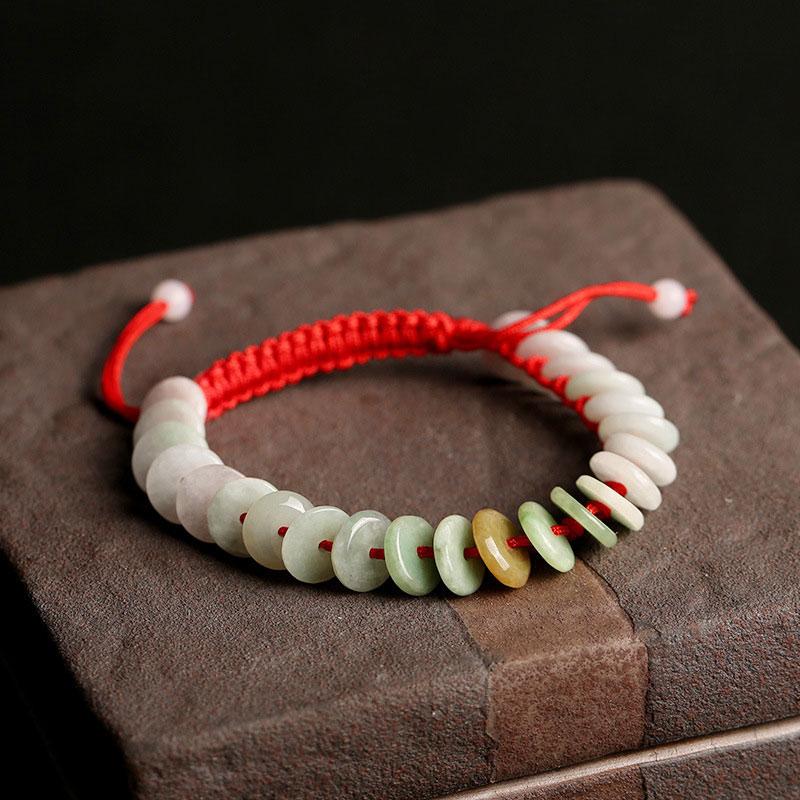What's the Jade Bracelet Meaning? The Ultimate Guide
A Jade Bracelet has the power to acquire the heart's desires and has the energy and passion for bringing them into the physical universe. That beautiful piece of jewelry complements any outfit and is said to have tremendous astrological, spiritual, and healing properties.
The appealing Jade Bracelet has a waxy brilliance, and reiki experts, gem healers, and herbalists frequently employ Jade stone during the healing procedure and reiki sessions.
The Jade bracelet is a graceful and one-of-a-kind piece of jewelry that will complement your jewelry collection. Our authentic Jade bracelets will never let you down. Our delicate and subtle Jade bracelet line is carved into intriguing, one-of-a-kind, and timeless designs.
What is Jade?
Jade's cultural origins can be traced back to the smoke-filled caves and huts where prehistoric humans sought refuge. Neolithic craftsmen molded this hardest of diamonds into swords, tools, ornaments, and ritual objects all throughout the planet. Their engravings evoked the forces of heaven and earth, as well as mystic death and life forces.
Jade is part of the Jadeite class of minerals and is part of the monoclinic crystal system. Jade is most well known for its different shades of green, but it also comes in red, white, brown, lavender, purple, and orange. Jade's meaning is protection, acceptance, compassion, courage, and luck.
History of Jade
Jade was once regarded as "yu," or "royal gem," in ancient China. In Western society, it had a value comparable to diamonds or gold. Because of its hardness, it was well-suited for usage in weapons and tools. Its beauty, however, made it popular for usage in cult figures, royal trial tomb decorations, and exquisite jewelry.
From as early as 5000 B.C.E. in China, jade was regarded as a strong stone and was utilized in ritual rites. The Chinese believe that jade can safeguard the body and spirit of both the living and the dead.
The significance of jade expanded beyond Asia. The Mayas, Aztecs, and Olmecs of Central America regarded jade as more valuable than gold. Besides, Indigenous Maori tribes in New Zealand fashioned local jade into swords and worship instruments. Jade was regarded as a stone of inner calm, equilibrium, and love, even in ancient Egypt.
Types of Jade
There are two types of nephrite: nephrite and jadeite. They are from separate mineral groupings, yet the variances don't end there. The following are some important distinctions:
Nephrite
Nephrite jade comes in a variety of green and grey hues, as well as brown, yellow, and white hues. Mutton fat jade is a type of creamy white nephrite found in China, and its dense white to light brown variations are known as chicken bone jade.
Fibrous gemstones, on the other hand, have a foggy look due to their fibers being packed together firmly, similar to wool felt or silk organza fabric. It takes on various hues after polishing, depending on the polishing ingredients and processes used.
Nephrite is more readily available than jadeite and is slightly softer in nature (usually 6.0 to 6.5 in the Mohs scale). The stones, on the other hand, maintain a high level of resistance against breaking.
Jadeite
Jadeite is a form of green jade that occurs in a range of colors, from lavender-gray to blue-green. The Royal Jade is a lovely green-emerald kind that China's last emperor favored. He kept it for himself, and because of its rarity, he desired it more than any other prize.
Green - blue-green, deep green, and pale green - are its predominant colors. It is, however, available in a limited number of colors, ranging from pink, lavender, and blackish tones to light purple with white mottling. It possesses an even more translucent property than nephrite, making it practically undetectable when held up against the sky at midday.
Authentic jadeite is harder than nephrite, although both are suitable for elaborate designs in carvings and jewelry. On the Mohs hardness scale, it has a hardness of 6.0 to 7.0, which implies it can scratch crystal and calcite but not quartz or corundum.
Jade Bracelet Meaning
In China, jade is thought to be a living entity that protects and heals the wearer's body and spirit from evil energies. Chinese females think that the jade bracelet protects them from danger, and that it will break or chip if they fall or are injured.
The more jade is worn, the clearer, purer, and more powerful it becomes like a living person. If the jade becomes hazy or dull, it suggests that the jade is absorbing a lot of negativity or disease.
Chinese parents frequently give their daughters a jade bracelet as a symbol of their love and protection. Jade's wisdom and mystique are passed down as folk law from mother to daughter.
Jade is regarded by the Chinese as a symbol of compassion, courage, justice, knowledge, and modesty.
Jade is prized in China for carving, as well as medical and religious uses. The Chinese used to put a green jade stone in the lips of recently departed people. Green jade is associated with the heart in Chinese culture.
According to ancient Chinese physicians, mixing powdered jade with water produces an elixir that strengthens the body and extends life. They reasoned that it would delay the body's decomposition if ingested before death.
Jade Color Meaning
The classic and most valuable jade color is green. Jade is also available in a variety of colors, including black, white, purple, blue, yellow, red, and orange. Although all jade has the same connotation, the color of a stone can provide additional meaning.
· Friendship, peace, and regeneration are all associated with the color green.
· Red symbolizes vitality, life, and love.
· Optimism, achievement, and generosity are all represented with the color yellow.
· The color orange represents ambition, vigor, and desire.
· Blue symbolizes trust, freedom, and faith.
· Purple represents wisdom, peace, and dedication.
· Black symbolizes elegance, safety, and pride.
· The color white represents purity, honesty, and clarity.
Jade Symbolism
People wore jade to ward off evil and injury in ancient China. It was cut into "pi" discs, little symbolic discs used in religious rites. Jade pendants and jewelry were worn by many Chinese to show their social rank.
Wearing jade bracelets for protection is still a practice related to ancient beliefs about the power of jade. Chinese parents frequently give Jade bracelets to their daughters or boys to remind them of their parents' protection and affection.
Jade is a sign of the lovely and valuable, representing Confucius' values of bravery, empathy, frugality, knowledge, and justice.
Jade Healing Properties
Jade has long been regarded as a stone of good fortune, which has been grasped, worn, and praised. It is said that the cosmos simply sends all good things Jade's way, and being a giving jewel, she is always delighted to share that good fortune. Your use of Jade can encompass all aspects of healing, from emotional to spiritual, and, of course, physical, in addition to being an amulet for good luck.
1. Physical Healing Properties
Jade is a powerful emotional and spiritual stone, but it also knows how to aid in physical healing. Because jade is such a strong cleansing stone, it can get right to work helping organs cleanse from pollutants.
It is known to benefit the kidneys, bladder, and spleen, as well as to assist the body's fluid systems in balancing out. Along with all of this, Jade is well-known for aiding in the fight against infections, lowering fevers, and encouraging the body to repair itself.
2. Emotional & Spiritual Healing Properties
When it comes to interacting with emotional well-being, Jade is incredibly intuitive. This stone nudges negative thinking patterns out of your mind, giving you the bravery and knowledge to accept your own wise counsel, and is all about increasing self-sufficiency, so you feel empowered and proud to stand on your own two feet.
When it comes to boosting self-esteem, navigating through the world with a fantastic sense of confidence, and keeping your soul nourished, self-sufficiency is crucial. Jade is associated with ideals of purity, which does not imply living without a shadow side, but rather being clear of mind and peaceful of heart in order to embrace all aspects of yourself.
Jade and Chakra
A chakra crystal combination is another technique to employ jade stone. That entails combining a variety of colorful gemstones and stones to represent the chakras, most commonly the seven primary chakras.

"Depending on what you want to achieve and the diversity of colors of the crystals you want to utilize, jade can be employed in chakra crystal combinations," Boote explains.
Dark jade mixed with earth gemstones like magnetite, according to Boote, is beneficial for anchoring and regulating the base chakra.
Jade and Feng Shui
In China, where Feng Shui originated, jade is one of the most prized stones. This precious and lovely stone symbolizes power and great fortune, as well as good health.
One of the most popular materials for carvings utilized in various Feng Shui adjustments is jade, which is noted for its green variants. It's also used as a base for a variety of jewelry designs. The gemstones nephrite and jadeite are both referred to as "jade."
Jade is a stone that can be used to improve Feng Shui in your home. Statues, carvings, and tumbled pieces are just a few examples of what may be done with it.
Benefits of Wearing a Jade Bracelet
Jade Bracelet is available in a variety of colors and tones. Emerald green and milky white are the most frequent. Both colors go well with the most common tones and colors of apparel worn by the majority of women.
Jade bracelets offer other advantages besides being a beautiful accessory and a good bracelet match for most fashion types.
1. Showcasing your own charm
The auspicious meaning of peace has traditionally been associated with jade bracelets. They are thought to be able to increase a woman's allure.
They are said to give the wearer an exquisite and soft appearance. These characteristics assist a woman's yin and yang elements to be balanced, making her appear highly appealing.
2. The psychological advantages
The ancients wore jade bracelets as good luck charms. According to popular belief, they are also thought to fend against evil spirits.
3. It is beneficial to the heart and blood circulation
Jade has been demonstrated to have the effect of relaxing the heartbeat, therefore decreasing heart rate, and, at the core of it all, stabilizing emotions in traditional Chinese medicine (TCM).
FAQs
How to Wear a Jade Bracelet?
A jade bangle can be worn on either the right or left hand. Because it is closest to the heart and is the classic method for the stone to reach healing and harmony throughout the body, many people choose to wear it on their left wrist. Many people will apply oil to their skin first and then slide the bangle on. The same procedure can be used to remove it.
What Does it Mean When a Jade Bracelet Breaks?
There's no need to be concerned if the jade bangle breaks, save for the loss of such a lovely ornament. Breaking a jade bracelet has no negative connotations.
It will not make the person who wears it sick or brings them bad luck. Instead, it is thought that the jade bangle protected the person by absorbing the damage and redirecting it away from the body.
Many women believe that when their jade bracelet broke, it shielded them from injury by spiritually absorbing the shock.
How to Tell If Jade Is Real?
Naturally, jade appears very cool when you touch it, regardless of the outside temperature. Moreover, jade stays cool when placed at a warm temperature. It normally takes time to heat up and cool down fast.
So, a good way to test jade is to take it in your hand and feel its coolness. Once you hold it for some time, it will heat up. Once it gets warm, place it aside for some time and then recheck its temperature. If you find it cool again, then you can safely conclude that it is real, otherwise not.
Conclusion
Jade is a caring and nurturing stone that instantly relaxes and helps you let go of old thoughts you may have been clinging to. It is one of the oldest healing crystals and amulets recognized for attracting luck. While some crystals can make you feel as if you need to dive right into healing, Jade offers a more gentle and spaced-out approach.
It's a stone that offers you all the love and courage you need to elevate your own energies, tap into your desires, and embrace all the great things that want to come your way.














